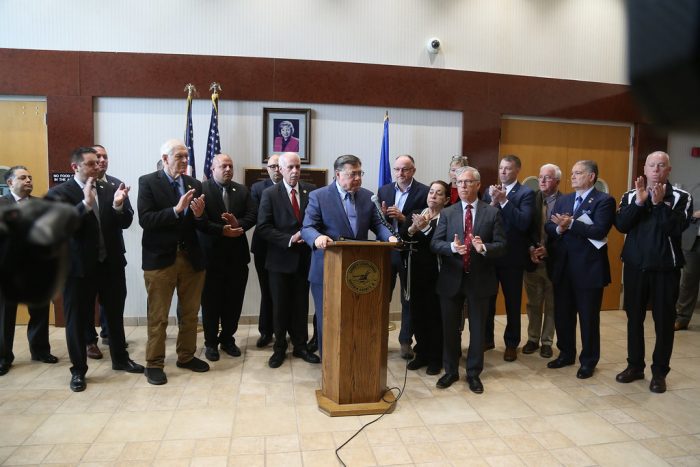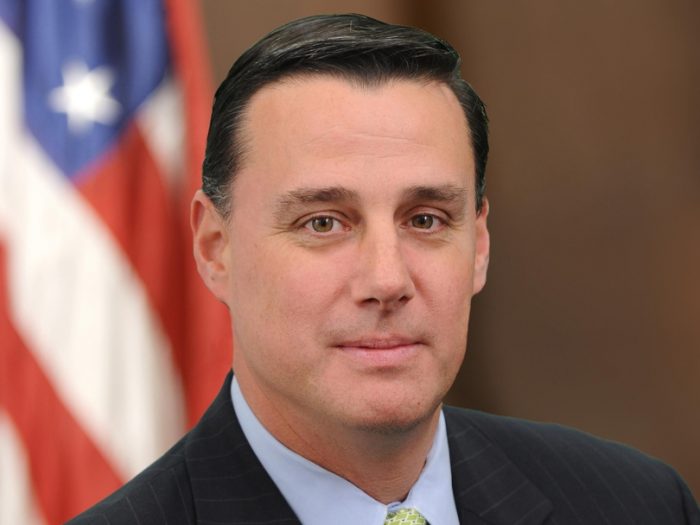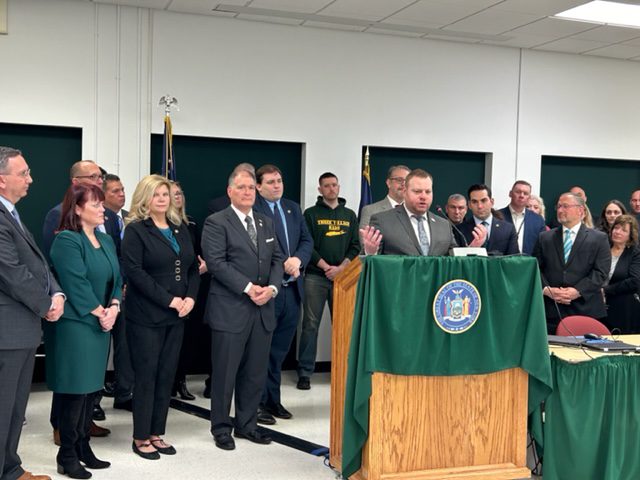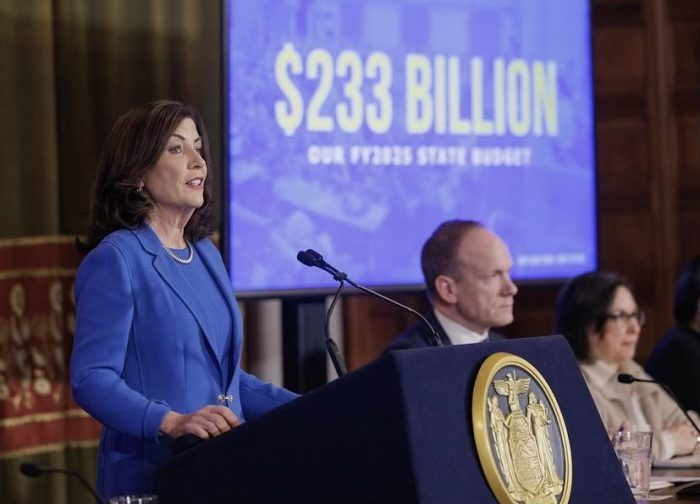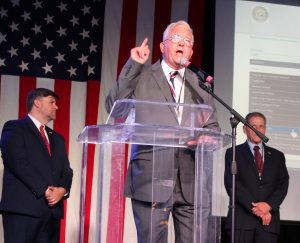By Samantha Rutt
A chilling crime has shaken communities across Suffolk County as police discovered scattered human remains in Babylon and Bethpage, leaving residents horrified and demanding justice.
The shock has escalated into outrage as local officials and law enforcement point fingers at Albany’s bail laws, which they claim have allowed suspects to walk free without posting bail.
County Executive Ed Romaine (R) minced no words in expressing his frustration, stating, “The failure of Albany’s bail laws has resulted in those charged with dismembering and placing body parts in our communities to walk free without posting any bail.” Romaine’s sentiments echoed the feelings of many Suffolk County residents who consider the current bail system is failing to protect the community.
In response to the recent crime, New York State Sen. Anthony Palumbo (R-New Suffolk) and Assemblyman Michael Durso (R-Massapequa Park) swiftly introduced new legislation (S.8751) to address the shortcomings of the bail system. The proposed bill aims to make body dismemberment and concealment of a human corpse a bail-eligible offense, highlighting the urgency of the situation.
Palumbo condemned the current bail laws, stating, “Nobody with an ounce of sensibility would say it’s a good idea to let someone charged with the sickening act of human dismemberment leave jail and roam the streets.” Durso agreed, vowing to fight for change to ensure the safety of Suffolk County residents.
Suffolk County District Attorney Raymond Tierney (R) also weighed in on the issue, responding to Gov. Kathy Hochul’s (D) statements on bail reform in relation to the recent tragic discoveries. Tierney accused the governor of being “completely clueless or deceitful” about the criminal justice system and defended the efforts of law enforcement in the face of what he called “a broken bail system.”
Assemblyman Ed Flood (R-Port Jefferson) added his voice to the chorus of criticism, expressing dismay over the release of suspects involved in the recent case where human remains were found. Flood denounced the lack of “humanity and morals” in the criminal justice system, attributing the problems to the flaws in bail reform laws.
The collective outcry from local officials emphasizes the need for action to address the failures of New York State’s bail laws. As communities continue to grapple with the consequences of these shortcomings, residents are looking to Albany for solutions that prioritize public safety and accountability in the criminal justice system.
Gov. Hochul responds
In a recent interview with PIX11, Hochul addressed concerns about bail reform, acknowledging the frustrations of law enforcement. She emphasized the importance of allowing judges to consider the whole body of evidence when making bail decisions and expressed her commitment to keeping people safe.
Hochul responded to additional comments made by Tierney, who suggested the need to reinstate the dangerousness clause and emphasized the law needs to be looked over.
“The standard changed just a few months ago — less than a year ago — and instead of the standard of dangerousness, we ask the judges now to look at a whole body of evidence,” she stressed.
Meanwhile, the community remains on edge as law enforcement continues to investigate the disturbing crime that has left a deep impact on the residents of the respective areas. As the investigation unfolds, residents are hopeful that meaningful change will come.
“Now, this is a very unique circumstance in Suffolk County,” Hochul said. “I know the Suffolk County Police Department is working hard to get to the bottom of this as is the DA. … They’re doing their job and I respect that. But the bail laws I thought went too far in the wrong direction. I’m bringing them back, and we’re going to continue to make sure that we keep people safe.”

